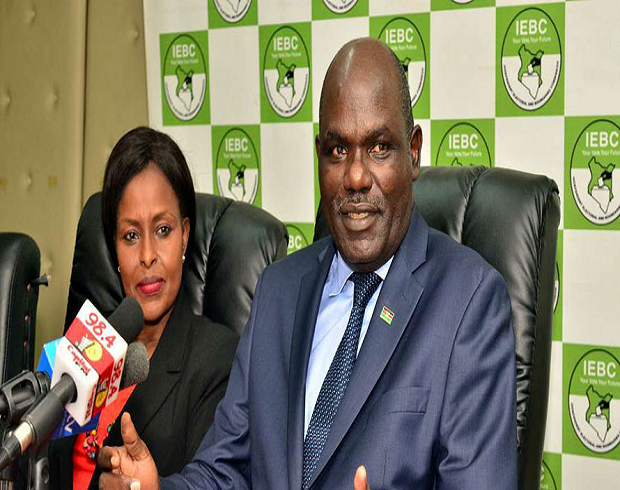Corporate governance in Constitutional commissions

[vc_row][vc_column width=”2/3″][vc_column_text]As I was glued to my television last Wednesday following the election results that were trickling in, I was distracted by a niggling thought at the back of my mind. Since the Independent Electoral and Boundaries Commission (IEBC) became centre stage in the run up to, during and post the August 8th 2017 elections, the Commission Chairman, Wafula Chebukati, has largely been the media face and the voice of the institution. From a corporate governance perspective, it is usually the chief executive of an organization who addresses the public on operational matters related to the institution, as the chief executive is the head honcho of all administrative matters and the executive buck stops with him or her. The chairpersons and their board provide monitoring and oversight over management’s activities so that the accountability buck ends up with them.
But the architects of the Constitution of Kenya 2010 had an alternative governance framework when they designed the ten constitutional commissions of which the IEBC is one. From a corporate governance perspective, it is difficult to align the IEBC with what other statutory corporate entities like parastatals have, namely a board of directors headed by a chair and a chief executive officer who is often the secretary to the board. In the IEBC case, the organization is legally designed to have a chairperson and 8 members. These 9 persons are assisted in their work by a secretariat that is supposed to perform the day-to-day administrative functions of the organization.
Using a standard corporate governance lens – which I recognize is fallacious in light of the intentions of the constitution’s architects – the chairperson and his commissioners seem to have executive roles rather than oversight roles. The assumption is that they will take on the roles on a full time basis, but the Constitution takes into account that some of its constitutional commissions may not warrant full time work as Article 250 (5) provides that a member of a commission may serve on a part time basis. Since the IEBC commissioners take on full time jobs for the six years they are in office, it bears noting then that it becomes difficult to separate the executive from the oversight and they are therefore fully answerable for the acts and commissions of the institution as executives, without a further protective layer of a “board” above them. It also provides for a unique working framework as they take on executive roles working side by side with a Chief Executive who oversees the administration as well. Section 10(7)(e) (iii) of the Independent Electoral Boundaries Commission Act, 2011 provides one of the roles of the Chief Executive as facilitating, coordinating and ensuring the execution of the Commission’s mandate.It’s therefore quite curious to see how the Chief Executive can hold a Commissioner to account for failing to execute the mandate that I am assuming they have assigned themselves as full time commissioners.
The architects of the Kenyan constitution recognized the unique position of liability that it was putting the constitutional commissioners in and provided in Article 250(9) that a member of a commission, or the holder of an independent office, is not liable for anything done in good faith in the performance of a function of office. This is further entrenched in the IEBC Act in Section 15 which provides the same protection from personal liability for commissioners and officers for acts done in good faith.
Back to last week: watching Chairman Wabukati’s performance during the media briefings at Bomas and his almost utter relief at handing over the microphone to the CEO Ezra Chiloba to answer “operational questions”, it was quite apparent that the unique governance framework that constitutional commissions exist in create a “political” face of the institution, and an “administrative” face. The Chairperson is the political face, the one who takes one or several hits for the team in the face of public scrutiny and who existentially provides cover to the administrative team to buckle down and do the work as the bullets fly above them. However, Chiloba’s calm disposition and obvious knowledge of the operational matters, which may be as a result of having been in office longer, shone a bright light on the unique governance structure of this constitutional commission.At best, the chairperson should have let the chief executive receive all the potshots during the main media slugfests, and then step in to do the clean up and bandaging once the hard questions had been parried.
[email protected]: @carolmusyoka[/vc_column_text][/vc_column][vc_column width=”1/3″][/vc_column][/vc_row]

 carolmusyoka consultancy
carolmusyoka consultancy
 @carolmusyoka
@carolmusyoka